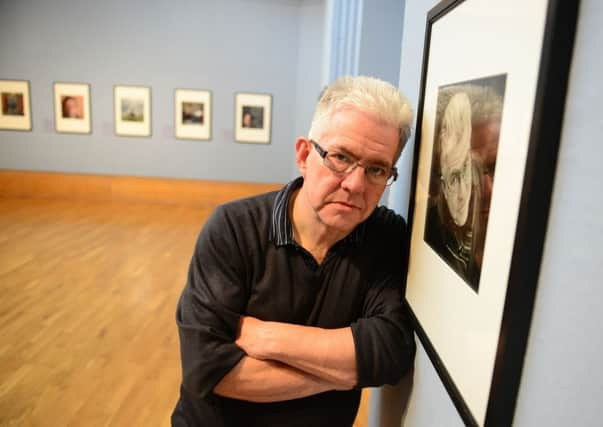Ian McMillan: Why the key to good writing is avoiding the Truth


I don’t go in fear of all kinds of abstractions, of course: I’m a big fan of abstract art and I’ll happily stand, nodding sagely and stroking at least one of my chins, in front of a blue line on a white background for ages until somebody gently points out that it’s a stain on the gallery wall. What I like about abstract art is that it doesn’t have to mean anything, whereas the abstract noun is weighed down by meaning until it snaps under the sheer tonnage of Guilt or Loneliness.
Mind you, as I was thinking about abstraction I suddenly remembered (or half-remembered: some of this may not be completely accurate) a scene in that old American sitcom Taxi, where some people are at a gallery and they look at a painting that’s just a squiggle of green. It’s called Girl in New York and one of the taxi drivers says: “Hey, I know that girl!” His friends look cynical but he says: “Well, she’s had her hair done, but it’s the same girl!” And for me that is a fine example of the gulf between abstract painting and abstract language.
Advertisement
Hide AdAdvertisement
Hide AdThe reason I’m going on about abstraction is that I’ve just been judging a poetry competition and a number of the entries, although otherwise well written, were making abstract nouns do all the heavy lifting in the stanzas. There were poems with titles like Sadness or Joy. There were lines that read something like “My despair will never end until the end of Time” which was the equivalent of a double top in darts because there are two clanging abstract nouns in there.
My advice to anyone wanting to write poems or stories or scripts would be: don’t treat the abstract noun as your friend. Pretend that each time you write one down you have to pay an Abstract Noun tax that will eventually bankrupt you. Take that line I quoted earlier, about despair not ending until the end of Time. That’s a case of the writer telling me something rather than showing it. If I could talk to the author of that line I’d get them to tell me about the situation that led to it. Maybe they had just broken up with their partner; maybe the partner had just run out and slammed the door.
Write about the door, then. About the sound of the slam. About the retreating footsteps. About the colour of the door. From these images the reader will realise that someone is in despair, and that the despair feels that it will never end. In writing, always give me the concrete image. Let me see the new haircut of the girl in New York; she will fill me with Happiness.